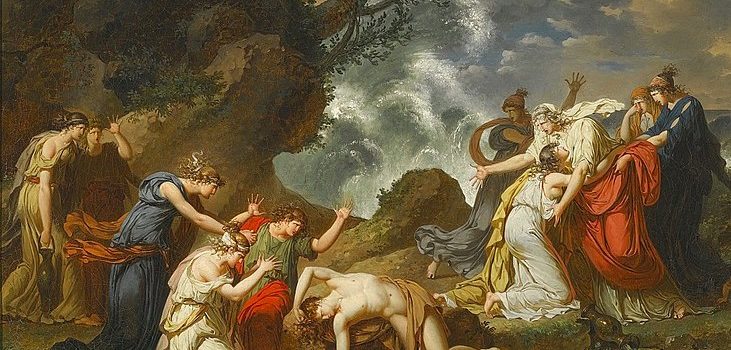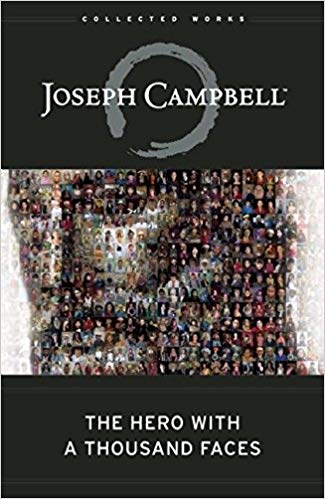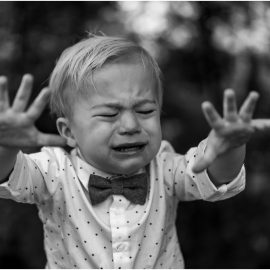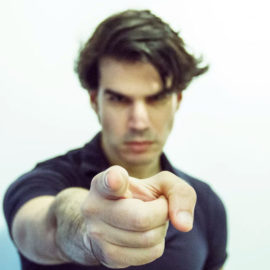

This article is an excerpt from the Shortform summary of "The Hero with a Thousand Faces" by Joseph Campbell. Shortform has the world's best summaries of books you should be reading.
Like this article? Sign up for a free trial here .
What is the relationship between mythology and psychology? How do psychologists serve the function of storytellers in the past?
We’ll cover how mythology led to psychology, the psychological aspects of ancient mythology, and why mythology is still relevant today.
Mythology and Psychology: Shared Functions
Although the hero’s journey in mythology is often filled with daring exploits, the slaying of fantastical monsters, and unions with strange and beautiful goddesses, it is at heart a deeply introspective and inward-looking adventure, one with profound spiritual and psychological implications. Through their arduous trial, the hero learns new things about himself or herself and discovers hidden strengths that were dormant within them the entire time—in fairy tales, this is often made literal by the revelation of the hero to have been “the Chosen One” or “the King’s son.” These new (but latent) powers enable a thorough transformation of the hero’s outward being and psyche. Mythology and psychology are intimately related.
When viewed this way, mythology is deeply egalitarian. It tells us who we are and the rewards that await us if we would only set aside our focus on the day-to-day humdrum of life and embrace the hero’s journey. The hero, far from being just a literary character of long-dead civilizations, symbolizes the great godly potential within all of us.
Psychological Journey
Myths are a society’s outward manifestations of inner conflicts and desires—they represent the expression of unconscious fears and desires. Psychology exists within mythology. Here are common elements of myths that relate to psychological tensions or needs:
- The hero often first refuses the call to adventure. In psychoanalysis terms, this reflects the clinging to infantile needs for security. The mother and father are the figures preventing true growth and transformation.
- Once set off on an adventure, the hero encounters a point where they are further away from the world of comfort and familiarity than they have ever been before. This aspect of the heroic monomyth parallels the dangers and uncertainties of growing out of childhood and away from the protection of one’s parents.
- The hero often encounters goddesses, taking the form either of beauty and the feminine ideal, or of a witch who attempts to harm the hero. These figures represent the need to balance 1) our need for the love and protection of our parents (especially our mothers) with 2) our concurrent need to grow up and become independent adults.
- The hero also often encounters a father-god figure whom the hero must either overcome or reconcile with. In Freudian terms, this echoes the psychological rivalry that children feel toward their fathers. The father is the original intruder who enters the infant’s life after the serenity and union with the mother (goddess) in utero.
- After conquering their fears, the hero at last achieves their long-sought enlightenment. They have shattered the bounds of consciousness and reached a divine state. This teaches us that this power lives within us all—we achieve it through our own herohood.
In modern times, this need to express unconscious desires is filled by the psychoanalyst, who analyzes and interprets dreams (a pure expression of the unconscious) and gives them meaning and structure. This is, in fact, a deeply ancient and profoundly mythic function— the psychoanalyst, like the medicine man and bard of old, helps us gain a deeper understanding of ourselves, our world, and our relationship to the cosmos. This is how mythology and psychology are intertwined. When we open ourselves up on the therapist’s couch, we are going into the furthest corners of the mind—we are, in effect, undergoing our own hero’s journey.
Mythology and Psychology Today
Unlike the ancients, we do not have the benefit of allegory and mythology to help us make sense of the bubbling up of our subconscious. As a secular, rational society, we increasingly lack the language to process this—psychoanalysis may be the closest thing, but it is not a substitute for the power of mythology and religion. Indeed, we have rationalized and argued our gods away.
With the coming of secularization and rationalization, supernatural elements are often played down or meant to be interpreted simply as allegory or instructive fable. It is easy for this to happen to myths in modern, science-driven society, because it is easy to prove that the myths aren’t literally “true.” As history, biography, and science, mythology is obviously nonsense. But to make this observation is to miss the point about what myths are and what purpose they serve for the human experience. They are about the endless journey of the soul, the adventure into the furthest recesses of the self. In this way, mythology and psychology have a lot in common. Mythology can help us on our path to better understand our psychology.
It is only through studying these ancient soothsayers and shamans and the dead gods they once worshipped that we can truly grasp our fullest humanity.
Mythology is still relevant, especially in the relationship between mythology and psychology. Mythology binds us closer and provide us with a shared sense of community. Though we may lead atomized lives as husbands, wives, sons, daughters, professionals, and members of this or that nationality, we are bound together through shared myths. The ceremonies that derive from mythology, those of birth, initiation, marriage and death, remind us that we are part of something much larger than ourselves. We are only a cell, an organ of a much larger being. This is as true for us as it was for the ancients. Like Odysseus, like the Buddha, like Cuchulainn, great marvels and unfathomable transformations await the modern hero who heeds the mythic call.
This transformation of the hero comes from tapping into a source of deep spiritual wisdom, which is often revealed to have been within the soul or psyche of the hero from the beginning. Thus, the archetypal hero’s journey involves a spiritual awakening, an attainment of some piece of the gods. We see this, for example, in the story of Prometheus, who ascended to heaven and stole fire from the gods, which he then imparted to the world. We also see this in the myth of Jason, who sailed through the Clashing Rocks and defeated a dragon to obtain the Golden Fleece, which enabled him to win back his throne from a usurper.
The Psychoanalyst as Modern Mystic
In ancient times, soothsayers, storytellers, and mystics helped people and societies make sense of the world they inhabited and of major life events by creating allegories and myths. These stories represented the conscious expression of unconscious fears and desires. Thus, myths were the outward manifestations of inner conflicts and desires, with the storyteller bridging the gap between the conscious and the unconscious.
In modern times, this role is played by the psychoanalyst. This exemplifies the connection between mythology and psychology. By analyzing and interpreting our dreams, psychoanalysts help give meaning and structure to our unspoken fears and desires and, in the process, help us gain a deeper—and more spiritual—understanding of ourselves, our world, and our relationship to our fellow human beings and the cosmos.
The journey of the mythological hero, the passage through trial and the entering of a new realm of consciousness, is nothing if not a grand act of introspection. The hero touches the metaphorical (sometimes literal) face of God and is so transformed. Likewise, when we open ourselves up on the therapist’s couch, we are going into the furthest corners of the mind—we are, in effect, undergoing our own hero’s journey. In this way, the power of mythology stretches its reach over the millennia and into our own time and place.
———End of Preview———

Like what you just read? Read the rest of the world's best summary of "The Hero with a Thousand Faces" at Shortform . Learn the book's critical concepts in 20 minutes or less .
Here's what you'll find in our full The Hero with a Thousand Faces summary :
- How the Hero's Journey reappears hundreds of times in different cultures and ages
- How we attach our psychology to heroes, and how they help embolden us in our lives
- Why stories and mythology are so important, even in today's world






